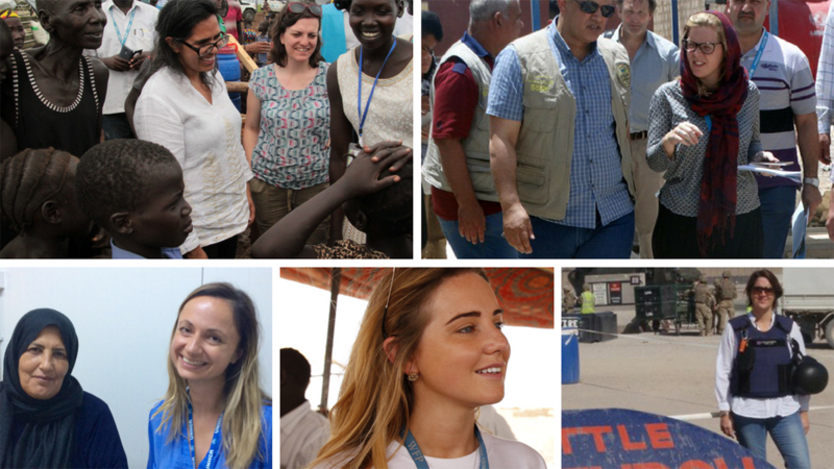
LONDON — There’s no typical path to becoming a humanitarian. Some join the frontlines after entire careers in government, finance or medicine, while others begin as volunteers and never look back.
For World Humanitarian Day on August 19, Devex has joined forces with the U.K. Department for International Development to shine a spotlight on the career paths of women humanitarians on the frontline. From helping recent refugee arrivals in central Greece, to navigating the fraught crisis in Yemen, to coordinating meetings with local partners, these stories offer a glimpse into the daily life of aid workers at the center of today’s most urgent crises.
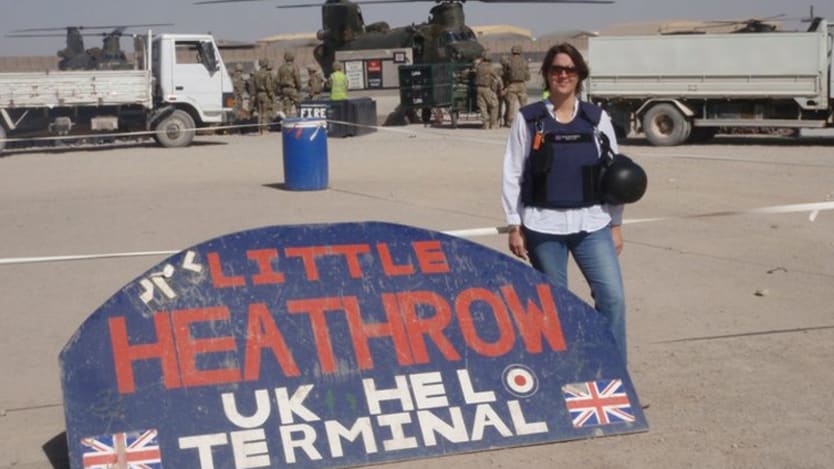
Becks Buckingham OBE
Head of DFID, South Sudan
Becks has had a varied career in the civil service. After obtaining a master’s degree in defense studies from King’s College London, she spent 17 years in the British army, taking part in operations overseas in Bosnia in 1995 and Kosovo in 1999.
See more related stories:
▶ Guterres calls for unity, protection of aid workers on World Humanitarian Day
▶ New app to support disability in emergency response
▶ IKEA and MSF tackle 'underreported' crises with new partnership model
▶ Opinion: There are no more excuses for aid agencies to ignore sexual violence
Following her military career, she worked in the Probation Service before moving on to run the Witness Service for victims of crime at the Old Bailey, England’s central criminal court. A change of direction saw her join the Ministry of Defence — where postings in secretariat, procurement, project management and policy followed — but she later returned to her criminal justice roots by joining Her Majesty’s Prison Service as a prison governor. After postings to adult male and young offender institutions, Becks was appointed governor at a prison for adult women serving sentences of four years or more.
In early 2010, Becks was appointed head of the Rule of Law team at the Provincial Reconstruction Team in Helmand, Afghanistan, working with Danish, American and British civilian and military police, lawyers and prison advisors to support Afghan rule of law development.
After 15 months in Afghanistan, she returned to the U.K. and joined the Advanced Command and Staff Course — an army officer training program — as one of five civilian students among 280 British and international military colleagues. Becks was sponsored by the Stabilisation Unit — a cross-government facility to coordinate activities supporting stabilization overseas — and, shortly after completing the course, she was appointed deputy head of the U.K. Stabilisation Unit. In this role she spent significant periods of time in Libya and Somalia working on security, justice and defense programing, as well as in Eastern Ukraine assessing the security situation for U.K. secondees. Becks returned to Afghanistan in June 2015, almost four years to the day that she left, to take up the post of deputy head of DFID Kabul. She finished this posting in November 2016 and, after a break, took up the post of head of office DFID South Sudan in April 2017.
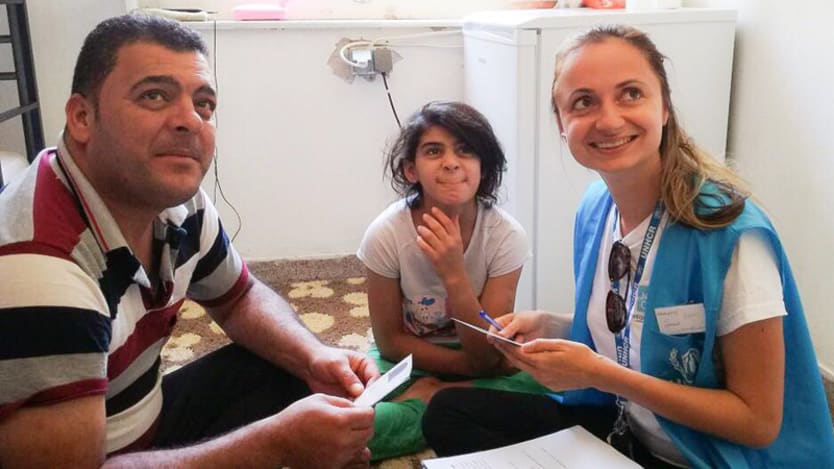
Charlotte Allan
UNHCR communications officer, Central Greece
Charlotte was born and raised in Brighton before she left to study law at Warwick University. She then studied human rights law at the London School of Economics, and now works with U.N. High Commissioner for Refugees as a communications officer in the refugee camps of central Greece. She previously worked in Egypt, Tanzania, South Africa and the U.S.
Her job focuses on providing refugees with access to information that will help them survive on the Greek mainland. While she focuses on communications, Charlotte said that in any given week she might “be doing everything from touring a sewage plant at a camp and meeting with army officers and police chiefs, to visiting local supermarkets to discuss food donations.”
Now on her third mission with UNHCR, Charlotte said “many refugees find themselves lost in a system that they don’t understand and rely upon Facebook pages that often provide inaccurate, and sometimes wilfully misleading, information.”
Her team currently covers four camps and three urban accommodation schemes that are spread over a large area. Arriving at the camp, she said there is usually a long line of people already waiting to ask for assistance, many of them requiring urgent attention.
“We always close the door of the container to ensure our conversations are confidential and people have a safe space to discuss the frightening things that have happened — and sometimes are continuing to happen — to them,” she said.
“Working with refugees is an honor,” she said. “One particularly special moment was when an elderly Iraqi man and his family were moved into private accommodation. He had serious medical issues, and along with his children, was in the camp with his elderly mother, whom he adores. When the team finally found him private accommodation, away from the stressors of camp living, he came and kissed me on the forehead like I was his daughter. He told me he was proud of me.” She added: “That was extremely touching.”
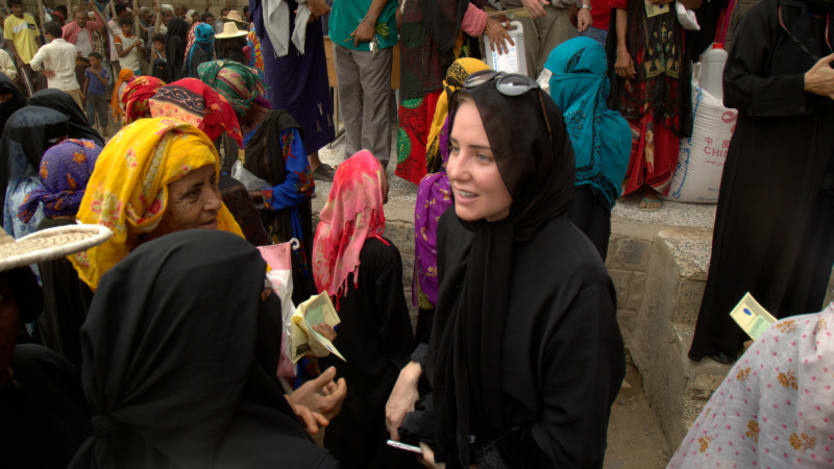
Esme Conway
Special assistant to the representative of the World Food Programme, Yemen
A typical day for Esme can be strenuous; due to the unpredictable security situation in Yemen, the United Nations community in the capital city of Sana’a lives in a restricted environment. She and her team are not able to travel to the city and only leave their accommodation once a day, five times a week, to go to the office.
Daily tasks include keeping the representative abreast of all security and operational developments, including information on any restrictions that may impact the World Food Programme’s ability to deliver food to those in need. Esme also supports the representative in Yemen by drafting advocacy messaging for internal channels, media and donors such as DFID, as well as arranging for high delegation visits to Yemen.
Esme said: “Usually we return back to the guesthouse by 6pm, go to the gym, eat dinner together and resume our work, working closely with colleagues from other agencies.”
Her work is frequently interrupted by the ongoing conflict. The main points of entry for food aid — including Hodeidah Port, which receives 70 percent of Yemen’s food aid — are constantly under threat.
Asked if she knew early on that she would end up in this line of work, Esme said, “Growing up in the U.K., I was surrounded by many people who had lived through conflict and had found peace in the U.K. After hearing their experiences, I always knew that I wanted to work in conflict-affected environments to help those who are less fortunate than me. I always knew I wanted to work as a humanitarian.”
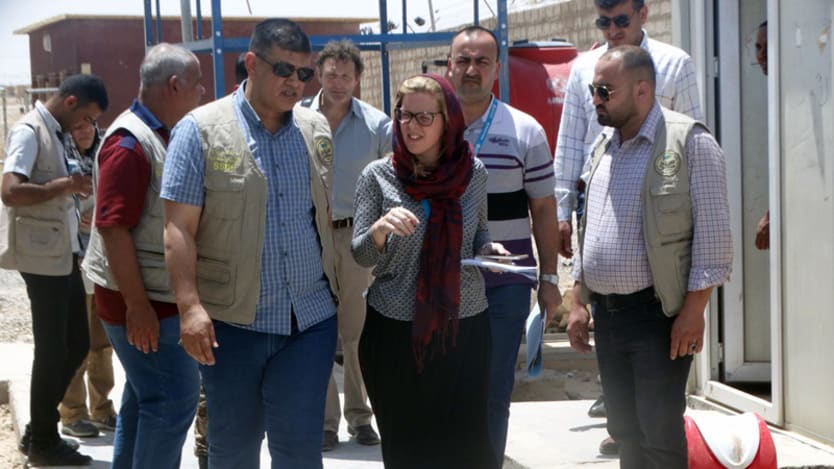
Katy Noble
UNICEF education coordinator, Iraq
There’s no such thing as a typical day for Katy, who recently woke to a phone full of messages and the news that the Iraqi government had just opened a new internationally displaced persons camp and was in the process of transferring hundreds of families there. In this situation, Katy’s job is to coordinate with frontline NGOs to set up school tents in the new camp, prepare staff and welcome the families off the trucks when they arrive.
Equipped with several years of experience working in Ethiopia, South Sudan and Pakistan, Katy started her career with a BA from Leeds University and an MA in education and international development, and joined the frontline after four years teaching in London.
Now based in Iraq with UNICEF, she sees firsthand how children living in towns and cities under ISIS control have missed out on up to three years of learning. “If children can't catch up on their curriculum, then they're at high risk of dropping out of school permanently — a lost generation,” Katy said.
“Crisis-affected children love being able to get back into a 'classroom' to be with their peers, play, get back to learning and be able to focus on something other than the crisis and chaos around them,” she said. “I use 'classroom' as a loose term, as humanitarian education often has to take place in tents, abandoned buildings or even just under the shade of a tree.”
Katy works on the interagency commitment to reopen schools in East Mosul within 100 days of the city’s liberation from ISIS. While she said the commitment was “perhaps a bit ambitious,” she and her colleagues recognize the importance of families and children being able to resume normal life and return back home, and agencies are now working “around the clock” to meet this deadline.
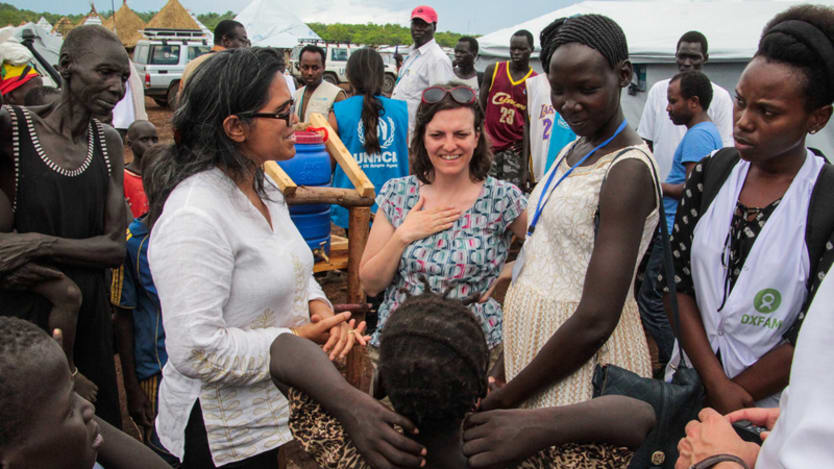
Louisa Medhurst
Humanitarian advisor with DFID, Ethiopia
Growing up in Kent, Louisa said she wanted to work for the United Nations from a young age after learning about the Rwandan genocide in school. She gained her first humanitarian experience after earning a BA in peace studies and international relations at Lancaster University and a law degree from the National University in Ireland. Having worked in the Palestinian territories and Lebanon, Louisa then took a role with the U.N Office for the Coordination for Humanitarian Affairs and the Norwegian Refugee Council in Timor-Leste and South Sudan, before returning to the U.K. to begin work for DFID.
Now an advisor in drought-stricken Ethiopia, Louisa spends her days meeting with partners and coordinating program visits to better understand the humanitarian situation in the country, as well as coordinating assistance with other donors to avoid duplication, and adding her own analysis before presenting suggestions for humanitarian response to DFID.
Louisa said the most satisfying part of the job is seeing action as a result of the advice she gives, and understanding that her recommendations can translate into a life-saving program.
She recounted a recent trip to Gambella to see DFID’s response to the influx of refugees from South Sudan. “There are now over 378,000 refugees from South Sudan in Ethiopia,” she said. “One element of our support helped Plan International to set up ‘child-friendly spaces’ for refugee children. Here they can play, receive counseling and try to rebuild their lives after the trauma they have witnessed in South Sudan.”
Read more international development news online, and subscribe to The Development Newswire to receive the latest from the world’s leading donors and decision-makers — emailed to you free every business day.








